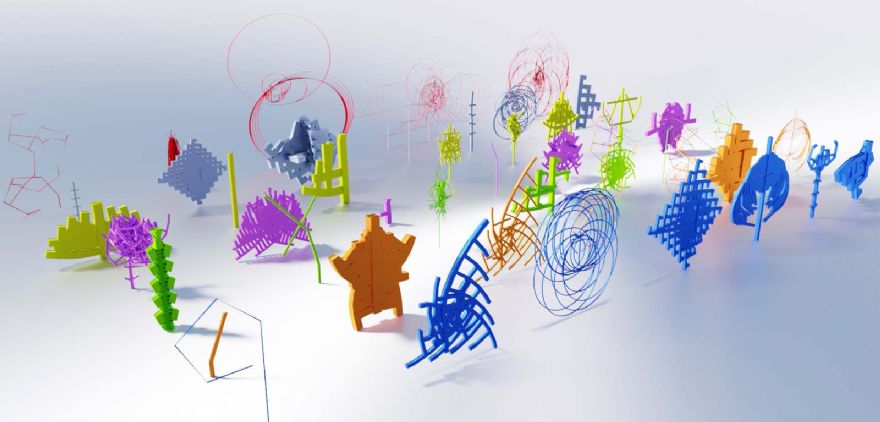
The first-ever manufacturing ‘cyber seed’ which grows just like a plant and produces innovative designs for products ranging from aircraft parts to medical devices has been conceptualised by researchers –— and is now being brought to life.
It will allow scientists to generate new products — bespoke to end-users and suited to the local environment with the materials available - at the tap of a button from anywhere in the world.
A team of experts from
Queen’s University Belfast, Loughborough University’s School of Mechanical, Electrical and Manufacturing Engineering and the
University of York have been awarded £7.3 million by the Engineering and Physical Sciences Research Council (EPSRC) for the ‘RIED’ (Re-Imagining Engineering Design) project.
The new research, which is being led by Queen’s University Belfast, has the potential to transform how design and manufacturing organisations work. It could make manufacturing more efficient, distributed, and accessible to many sectors.
The cyber seed is made up of ‘genes’, which are simple text descriptions of a product’s design characteristics and attributes, such as size, density, stiffness, and chemical composition. The genes are read by special software, which then links up with a CAD system to create a 3-D model of the design, ready for their manufacture and realisation.
The cyber seed is said to ‘grow’ within the computer model, similar to the way a stem on a plant does in nature, and the ‘genes’ in the seed divide and copy to build very complex shapes that only become viable when they meet certain conditions.
What sets this research apart from existing systems is that the cyber seed assesses the bespoke specifications of the end-user and manufacturing capabilities and adapts the end product to meet the needs of the user using local resources. This can be done virtually so a product can be created by someone in an entirely different part of the world at the tap of a button.
Professor Mark Price, the principal investigator at Queen’s University Belfast, said: “As a society, we are facing many significant environmental, technical and economic challenges which require new thinking on manufacturing processes to allow us to adapt to problems and capitalise on opportunities. These concepts develop naturally, very much how a plant or living organism would grow.
“With advanced manufacturing methods, it is now possible that vending machines for complex products such as bicycles or aircraft parts are a real possibility. Such a future seems more like science fiction, but it is a very exciting time for industry and by working together we can achieve so much.”
Professor Paul Conway, the Loughborough University lead, said: “Our approach is inherently flexible and agile, which is particularly important in designing current and next-generation products, that often have multiple concurrent and interacting functions embodied and created within new challenging situations, such as the circular economy. The programme allows these challenges to become real opportunities for future innovations.”
Potential This new approach to ‘design, manufacture and deployment’ could unlock a wealth of opportunities for the medical and bio-engineering sectors, with the possibility of generating patient-specific devices or therapeutic specimens that are customised, but their manufacture does not cost prohibitive amounts of resources and money.
Dr Carmen Torres-Sanchez, who is part of the Loughborough research team, said: “This flexibility will allow the treatment of new diseases and the rehabilitation of patients who need, for example, a frequent change of orthopaedics or an implantable device that releases medication attuned to the patients’ needs along the course of a treatment.”
RIED will be supported by Airbus, Glen Dimplex, ITI, Rolls-Royce, Denroy, SAM UK, MTC, Far UK, OxMet, Bombardier (Spirit Aerosystems) combining the significant research background of the academic institutions with the industrial pedigree of the partner companies.